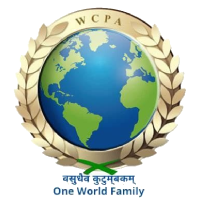WLA 46. Clandestine Operations Prohibition Act.
Provisional World Parliament
2 through 7th July 2009, Van Niwas Sri Aurobindo Ashram, Nainital, Uttarakhand, India
Clandestine Operations Prohibition Act
Act to prohibit all nations, corporations, or other organizations from maintaining intelligence agencies or other clandestine criminal organizations.
Whereas, the world has witnessed in recent years the immense abuse of clandestine intelligence agencies such as CIA, M-6, Mossad, or KGB;
Whereas, such agencies have repeatedly proven themselves to be criminal in nature, operating outside both international and national systems of law;
Whereas, such agencies have been associated with torture, violations of habeas corpus and other human rights, disappearances, false-flag terrorist acts, and murder;
Whereas, demilitarized nations with the framework of the Earth Constitution will experience a drastically reduced insecurity, manipulation, or other threats from foreign governments ostensibly necessitating such activities;
Whereas, unlike spy agencies, legitimate police operating under the rule of democratically legislated laws are responsible to obey those laws and subject to criminal punishment if convicted of violating the law;
We delegates of the 11th Session of the Provisional World Parliament hereby proclaim the following law:
- Nations, corporations, or any other group must not maintain, support, or have dealings with any public or private intelligence agency, spy ring, or other group operating secretly to achieve ends not publically affirmed under world, national, and local laws.
- Unlawful intelligence agencies, spy rings, or other groups operating secretly shall disband, beginning immediately.
- If there are nations outside the initial Earth Federation that continue to engage in clandestine criminal activities through intelligence agencies, the Earth Federation must not create its own such agencies in response, but will find alternative, diplomatic, and law abiding ways to deal with clandestine threats;
- This statute does not apply to civilian police within localities, nations, or the Earth Federation who may operate undercover to bring suspected criminals to justice but who are responsible to the public, democratically legislated laws of their respective jurisdictions.
- Local, national, or world police forces must not use undercover work for political spying, false-flag operations, inciting criminal activity for others, or the facilitation of violence or other crimes.
- Civilian police will direct all undercover work toward bringing suspects to public trial within legitimate civilian courts.
- Police must not prejudge the guilt or innocence of suspects and implement punishment of some form outside normal due process of law. Torture or any form of “enhanced interrogation” is absolutely forbidden. Ad hoc courts, military courts, or any form of clandestine courts are absolutely forbidden.
- Punishment for police who engage in violations of any provisions of this act will include dismissal from the force, loss of any fringe benefits, and prosecution as specified in articles 5, 6, and 7 of this act.
- Any acting as an agent of an illegal intelligence, illegal clandestine operation, or spy agency is unlawful (world class 4 felony). This penalty is in addition to conviction for any criminal activities committed while employed as a clandestine agent.
- Any employing or directing of an agent or agents for purposes of illegal surveillance or acting to violate the law prohibiting clandestine activity is unlawful (world class 5 felony). This penalty is in addition to conviction for any criminal activities, such as accessory to murder, extortion, or violations of human rights, committed while acting as an employer or supervisor of clandestine agents.
- According to the discretion of the judges and circumstances of the offence, the courts may impose more severe penalties for second offenses of the crimes identified in items 5 and 6, than are listed in the World Penal Code. But in no case will the penalty for subsequent offenses be less than that designated for the first offence.
Adopted as amended
4 July 2009
Attested,
Eugenia Almand, JD, Secretary, Provisional World Parliament

